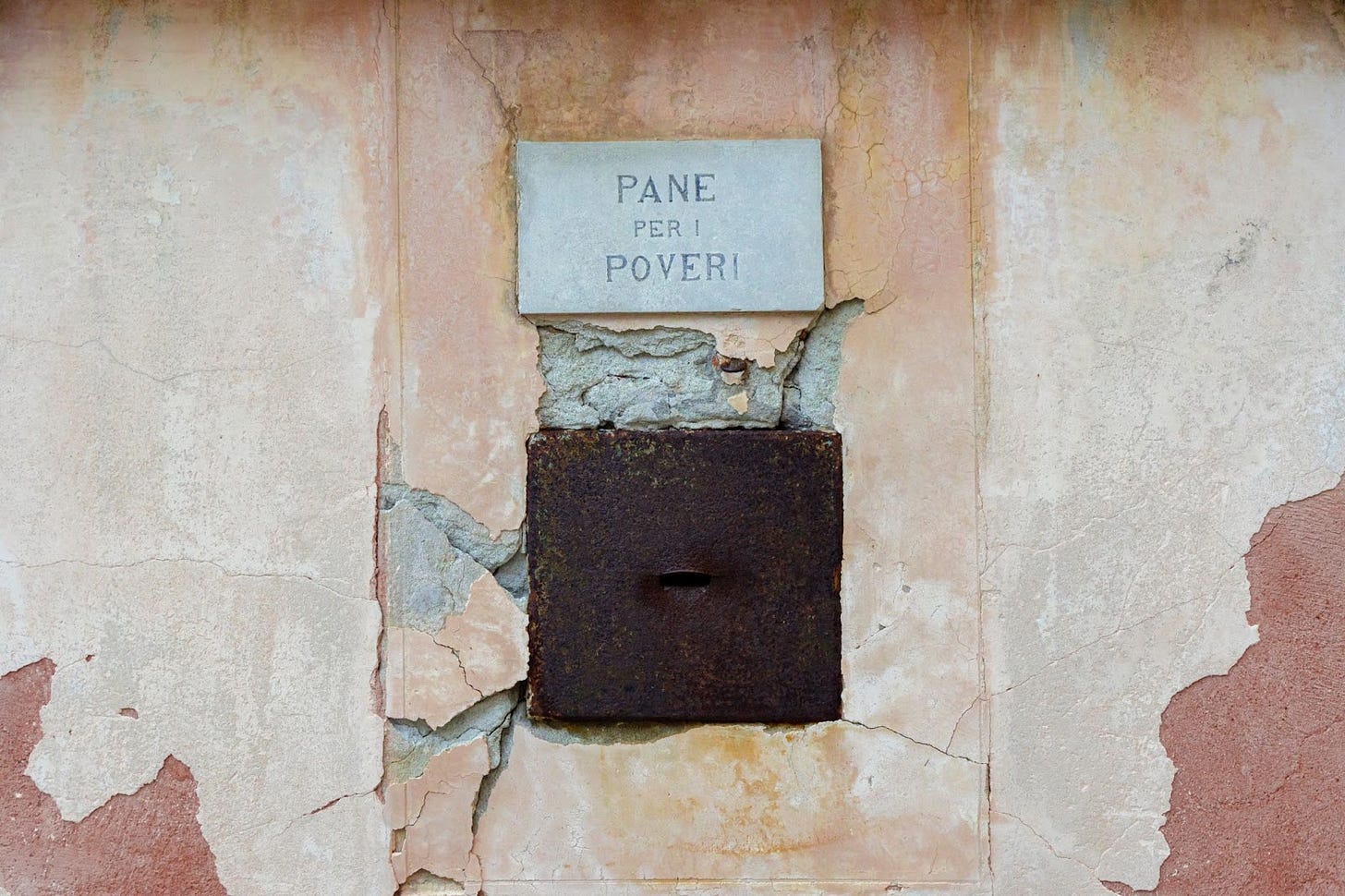Love and Justice
There’s nothing wrong with a little overlap, but problems arise when we fail to distinguish these things properly
We use the word “love” in many ways and for many things. One can say “God is love,” but the word means something different than when one says “I love ice cream.” I love my wife differently than I love my parents or my own children, the same word is used.
Sometimes, of course, we use different words to mean the same thing. Sometimes “charity” and “love” are used interchangeably, but sometimes not. If I were to express “charity” towards ice cream you might look at me cockeyed. Sometimes charity and love mean the same things; sometimes they do not.
Greek, famously, has several different words for love. In the Gospel of John, for example, Jesus asks Peter, “Simon son of John, do you love (agape) me?” to which Peter responds, “Yes, Lord, you know that I love (philia) you.” Jesus again asks, “Do you love (agape) me?” and Peter responds, “Lord, you know that I love (philia) you.” The third time Jesus asks, he uses Peter’s word for love, “Do you love me (philia)? And so on.
Much has been made of the differences between agape and philia in this conversation. You have probably heard a homily about this at some point. The idea is that Jesus is calling Peter to the highest form of love, an unconditional, self-giving love (agape). But Peter is only willing or able to love with a lesser-but-still-good fraternal way (philia) and so Jesus meets him where he is.
That’s an interesting and compelling exegesis.
But what if Jesus and Peter were using the two words interchangeably, as was common among Greek speakers? That’s possible, too.
The point is that all of this nuance would be lost on us if we only had the English translation at our disposal. Once the shades of meaning are pointed out to us – even if we know no Greek – it makes sense.
Language can communicate beyond the barest meaning of the words, but the words we have at our disposal also shape how we think of the concepts we are trying to articulate.
Our word “love” (or “charity”) is just one example. “Justice” is another.
Justice is what one owes to another. We often use the word in that sense, but we also use it to mean “fairness” (which means treating things equally) or simply “doing the right thing.” And here the concept of justice has a tendency to overlap with charity.
There’s nothing wrong with a little overlap, but problems arise when we fail to distinguish these things properly, or when we make false distinctions, such as thinking that what is done out of charity might not also be a matter of justice.

